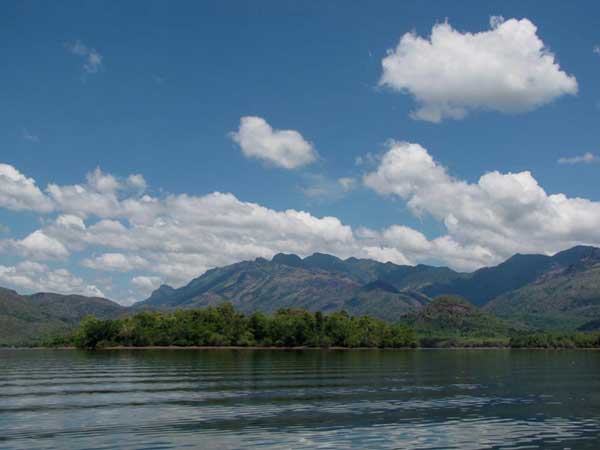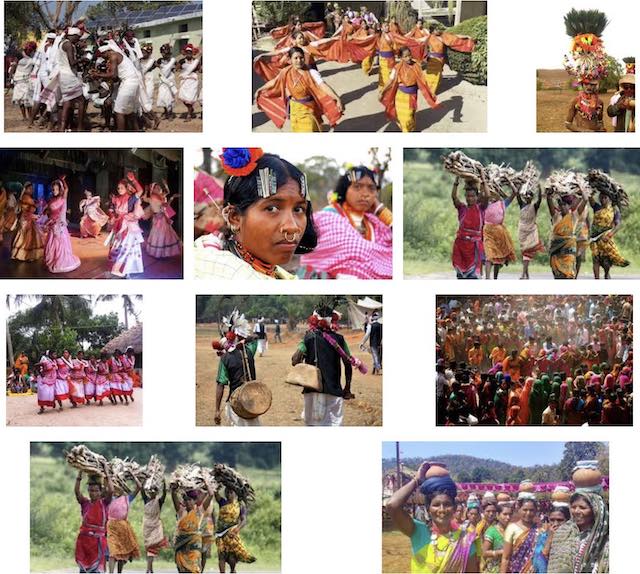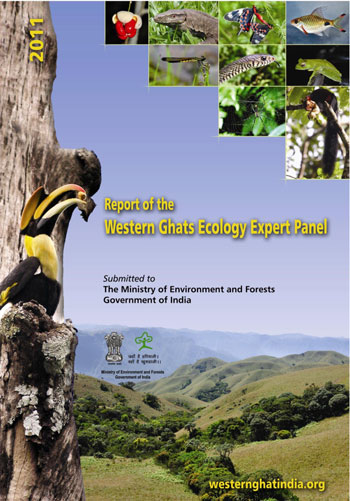
Photo courtesy Davidson Sargunam >>
By Davidson Sargunam
Indigenous peoples are ethnic groups native to a land or region. Usually they have a close relation to the land and live in consonance with nature.
They believe that land and people are inseparable and interdependent. It is this aspect of their lifestyle-the intertwining of their lives with their natural surrounding that are a subject of fascination to modern man. Today at a time when man is moving further away from direct contact with nature, a study of people with a different mindset is not only a subject of fascination but an important learning as well. And this is just what inspired S. Davidson Sargunam, an environmental educationist from India to study the ‘Kaani Tribe’. […]
Realizing how modernization is affecting the tribes and their lifestyles, I felt there was an urgent need to study and document various aspects of the tribal culture. With this in mind I decided to study the ‘Kaani’ tribe. […]
I respect the culture of the ‘kaani’ tribe. But at the same time I can see how modernization is affecting them. It is becoming difficult for them to continue their old ways of living. At one time, they lived undisturbed in the forests and had access to the abundant forest resources for food and sustenance. But things are changing now. […]
At the same time, I do not wish to glamorise their life. There are now schools nearby but so far they kept away from formal education. I am trying to help them by removing their concerns about ‘education’. Since it is something they have not been exposed to before many have apprehensions about school. […]
We explain how child marriage affects the health of the girls as well as the babies born to them. The efforts are slowly bearing fruit. One success story is a girl who pursuing a college degree in botany.
The Kaani tribe is inevitably facing transition, in all aspects of life. The forces of globalization, free trade and the communication revolution have made indelible impacts in their lives. […]
About the Author:
S. Davidson, a student of English literature with a post graduate degree in Education is a man who wears many hats. He has a diploma in mass communication and now doing his MPhil in Folklore. Davidson is deeply passionate about the environment and environmental issues and is involved in a number of activities to create awareness among students, tribes, and the general public. For his work in the field of environment he was awarded the NCERT National Award, in 2000 for ‘Imparting Environmental Awareness by innovative teaching methods’.
Source: “Indigenous Peoples and Environmental Ethics : The Kaani Tribe in India” | EcoWalktheTalk
Address : http://www.ecowalkthetalk.com/blog/2011/09/07/organic-living-culture-of-the-hill-kani-tribe/
Date Visited: Mon May 14 2012 11:49:35 GMT+0200 (CEST)
Up-to-date reports by Indian experts and journalists
Search tips
Combine the name of any particular state, language or region with that of any tribal (Adivasi) community.
Add keywords of special interest (music, poetry, dance just as health, sacred grove and biodiversity); learn about the rights of Scheduled Tribes such as the “Forest Rights Act” (FRA); and the United Nations “Declaration on the Rights of Indigenous Peoples”, “Universal Declaration of Human Rights”, “women’s rights”, or “children’s right to education”.
Ask a question that includes “tribal” or “Adivasi”, for instance: “Adivasi way of life better?” (or “tribal way of life worse?”)
Specify any particular issue or news item (biodiversity, bonded labour and human trafficking, climate change, ecology, economic development, ethnobotany, ethnomedicine, global warming, hunter-gatherers in a particular region or state, prevention of rural poverty, water access).
For official figures include “scheduled tribe ST” along with a union state or region: e.g. “Chhattisgarh ST community”, “Himalayan tribe”, “Scheduled tribe Tamil Nadu census”, “ST Kerala census”, “Particularly Vulnerable Tribal Group Jharkhand”, “PVTG Rajasthan”, “Adivasi ST Kerala”, “Adibasi ST West Bengal” etc.
In case the Google Custom Search window is not displayed here try the following: (1) toggle between “Reader” and regular viewing; (2) in your browser’s Security settings select “Enable JavaScript” | More tips >>
Note: hyperlinks and quotes are meant for fact-checking and information purposes only | Disclaimer >>
List of websites covered by this Google custom search engine
Academia.edu (platform for academics to share research papers) – www.academia.edu
Archive.org – https://archive.org
Centre for Science and Environment – https://www.cseindia.org
Current Conservation – https://www.currentconservation.org
Development and Cooperation (D+C) https://www.dandc.eu
Down To Earth (India) – www.downtoearth.org.in
India Environment Portal – www.indiaenvironmentportal.org.in
Harnessing Nature Magazine – https://harnessingnature.online
Mongabay-India – https://india.mongabay.com
M S Swaminathan Research Foundation – www.mssrf.org
Navdanya (protecting India’s biodiversity based food heritage) – https://navdanya.org
Third World Network (Penang, Malaysia) – https://twn.my
The Shola Trust (nature conservation in the Nilgiri region) – www.thesholatrust.org

Indian online periodicals and platforms | Images view >>
~ ~ ~
Personalize your CustomSearch by combining other search words >>
(e.g. name of a tribal community and region, a craft, or dance and puppetry)
Research the above issues with the help of Shodhganga: A reservoir of theses from universities all over India, made available under Open Access >>
Note: hyperlinks and quotes are meant for fact-checking and information purposes only | Disclaimer >>

Celebrations and Convergence for
Conservation In Western Ghats (PDF, 3 MB) >>
Learn more
Western Ghats tribal heritage and ecology >>
Learn more
Anthropology | Ekalavya (Eklavya) | Government | Networking | Organisations
Colonial policies | Bonded labour, Forced labour, Slavery & Zamindar | “Criminal tribe”
Biodiversity | Biodiversity hotspot | Hyderabad biodiversity pledge | Western Ghats – tribal heritage & ecology
Climate change | Audio | The Climate Question (BBC Podcast)
Coastal region | Mangrove forest | Water | Wetland
Customs | Homes and utensils | Modernity | Native science | Revival of traditions
eBooks, eJournals & reports | eLearning
eBook | Background guide for education
Ecology | Eco tourism | Ethnobotany | Sustainable agriculture | Wildlife tourism
Food distribution | Recommendations
Forest Rights Act (FRA) | Hunter-gatherers | Nishad (Nishada, Sanskrit Niṣāda, “tribal, hunter, mountaineer, degraded person outcast”) | Vanavasi (Vanvasi, Vanyajati)
Health and nutrition | Antivenom | Ayurveda
History | Environmental history and what makes for a civilization – Romila Thapar
Hunter-gatherer | Man animal conflict | Vanavasi | Sakuntala narrative
Fruit | Honey & bees | Indigenous knowledge systems | Mushroom | Vegetable
Involving tribal communities in conservation (Kanyakumari)
Mountains | Nishad (Nishada, Sanskrit Niṣāda, “tribal, hunter, mountaineer, degraded person outcast”) | Particularly vulnerable tribal group (PVTG)
Nature and wildlife | Bamboo | Bird | Crocodile | Elephant | Insect | Snake | Tiger | Trees
Sacred grove | Worship and rituals
Scheduled Tribes | Classifications in different states
Success story | “The tribal food basket has always been diverse and nutritious”
United Nations on climate change
What is the Forest Rights Act about?
Who is a forest dweller under this law, and who gets rights?